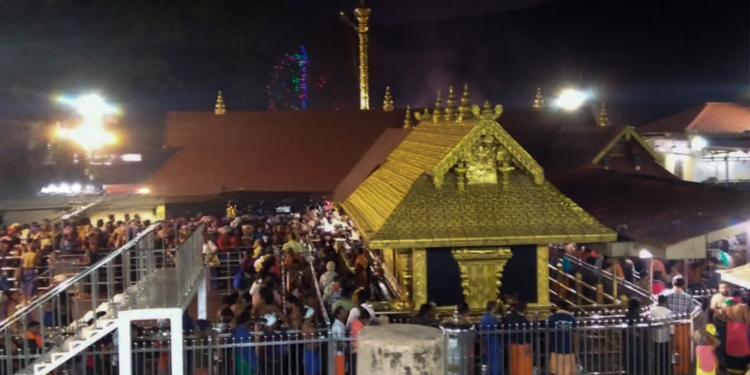The Kerala High Court recently denied permission for a 10-year-old girl to enter the Sabarimala temple.
Traditionally, women between the ages of 10 and 50 are barred from entering the temple, a rule intended to restrict entry to women and girls of menstruating age.
In 2018, the Supreme Court ruled that women of all ages should be allowed to enter the temple. However, a review petition challenging this decision is pending before a larger bench of the Supreme Court, meaning the previous age restriction remains in effect.
This week, a division bench of Justices Anil K. Narendran and Harisankar V. Menon dismissed the 10-year-old girl’s plea to visit the temple, citing the pending review petition.
“Since the question regarding the interplay between freedom of religion under Articles 25 and 26 of the Constitution of India and the provisions in Part III, particularly Article 14, and connected issues are pending before a larger Bench of the Supreme Court in Kantaru Rajeevaru v. Indian Young Lawyers Association in the review petitions arising out of the judgment of the Constitution Bench in Indian Young Lawyers Association v. State of Kerala, the petitioner cannot invoke the writ jurisdiction of this Court under Article 226 of the Constitution of India, seeking the aforesaid reliefs,” the judgment stated.
The petition was filed by the minor girl after her online application to visit Sabarimala was rejected by the Travancore Devaswom Board, which administers the temple. Her primary argument was that the 10-year age limit was set for convenience to exclude girls who have reached puberty. She contended that since she had not yet attained puberty, she should be allowed to participate in the pilgrimage.
However, the Court referred to its previous judgment in S. Mahendran v. Secretary, Travancore Devaswom Board & Ors., which upheld the age restriction as a time-honored practice that does not violate the Hindu Place of Public Worship (Authorisation of Entry) Act, 1965, or Articles 15, 25, and 26 of the Constitution.
Given that the questions about the interplay between freedom of religion under Articles 25 and 26 and the provisions in Part III, particularly Article 14, are to be decided by the Supreme Court’s larger bench, the High Court found it appropriate to dismiss the girl’s petition.
The minor girl was represented by advocates Manu Goving and A. Jayasankar. The Travancore Devaswom Board was represented by advocate G. Biju.

















